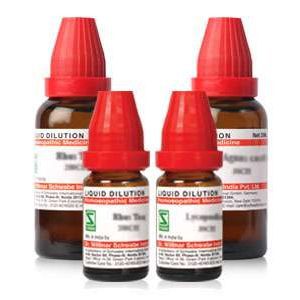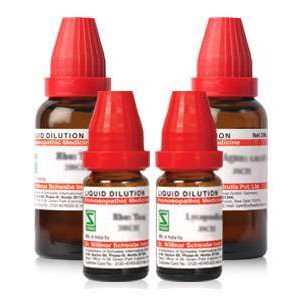
Top 5 Hidden Causes of Anxiety
- Dr. P T Ponmani
- December 23, 2019
- No Comments

Anxiety is a very normal and often healthy emotion, but when it disturbs a person’s day-to-day life and creates disproportionate levels of anxiety, it may be a medical disorder. Anxiety disorder forms a category of mental health disorders which is presented as excessive nervousness, fear, apprehension, and unwanted worry. These disorders may add to the distress and alter the person’s emotional behaviour, and may also affect physically. Anxiety disorder is more than just feeling stressed or worried. A little stress and anxiety are common responses to a critical situation and they usually pass once the situation has passed. Anxiety is when this feeling does not pass or is persist and keeps returning without any cause.
Symptoms
The symptoms of generalized anxiety disorder are irrational fear, mental restlessness, a feeling of being on the edge, uncontrollable worry, increased irritability, difficulties with concentration, sleep and emotions.
Causes
The causes of anxiety disorders are variable and may be very simple or complicated.
1. Stress
such as difficulties at work, relationship problems, or family issues, the stress in a personal relationship such as marriage, financial, and emotional trauma such as the death of a loved one, serious medical illness, excessive exhaustion, building up of stress, long working hours, being out of work, feeling under heavy pressure while studying or in work.
Also Read What are the treatment options for Anxiety?
2. Medical conditions and medications
such as the symptoms of a different disease, the effects of a medication, the stress of intensive surgery, prolonged recovery, side effect of medication, and living with a serious or ongoing life-threatening health condition.
3. Other mental health problems
It is very common to develop anxiety while living with other mental health problems, such as depression, obsessive-compulsive disorders, phobias, mood and manic disorders, and certain psychiatric medications and psychoactive drugs can cause anxiety.
4. Traumatic past and childhood experiences
Difficult experiences in childhood, adolescence or adulthood such as physical or emotional abuse, neglect, losing a parent, being bullied or being socially excluded are common reasons for anxiety problems. Such experiences can cause a long-lasting impact and can lead to anxiety problems.
5. Recreational drugs or alcohol
Long-term use of alcohol, drugs and other substance abuse and the following withdrawal from these might intensify the anxiety and neurosis in a person.
Also Read 5 Signs of Mental Stress & Its Cure
Management of anxiety
- A combination of psychotherapy, behavioral therapy, and medication is needed to help relieve anxiety.
- Yoga helps effectively in reducing the effects of an anxiety disorder.
- Stress management by learning to manage stress through proper planning and organizing the work
- Relaxation techniques such as meditation, deep breathing exercises, long baths, massage and spa, etc.
- Talking to a family member or friend.
- Exercise can improve positivity and release chemicals in the brain and produce happy hormones.
- Counselling helps to reduce stress and anxiety
- Reduced intake of caffeine, tea, cola, and chocolate.
- Maintaining a healthy diet.
- Keeping a regular sleep pattern.
- Avoiding alcohol and other recreational drugs.
Homeopathic medicines for anxiety
Aconite: It is indicated for intense, sudden anxiety, panic, or fear. Panic could be connected to past trauma. Symptoms of this type of panic include dry skin, dry mouth, and fast heartbeat.
Argentum nitricum: This is sometimes recommended for people with anxiety that is due to uncertainty. This includes claustrophobia, hypochondria, fear of heights, or fear of everyday things. Uncertainty-based anxiety could be accompanied by digestive disturbance, like diarrhea, and sweets cravings.
Arsenicum album: Anxiety due to fear of loneliness, darkness, or being imperfect. People with this type of anxiety fear being alone and may relieve anxiety through the control or criticism of others.
Gelsemium: People with this type of anxiety are often timid and shaky. They may experience agoraphobia, avoid crowds or public speaking, and be vulnerable to fainting. They often also desire solitude and avoid insistent pressure from other people.
Ignatia: It is indicated for those experiencing anxiety from grief or loss. People who fit this description are often very sensitive and prone to mood swings, moving from laughter to tears. Ignatia is also recommended for depression.
Kali arsenicosum: This is a remedy for anxiety that is health-based. Conditions include hypochondria, excessive grooming, and even fear of heart attacks. People with health-based anxiety may have racing thoughts and difficulty sleeping. They may also fear death or dying. They can be prone to feeling cold and vulnerable to panic attacks.
Stramonium: Anxiety with night terrors, nightmares, or dark thoughts while awake. People with this type of anxiety are often scared of the dark or being alone and are especially scared by thoughts of monsters or mysterious figures. Their imaginations tend to worsen their anxiety.
-
 Ignatia amara CHSale Product on sale
Ignatia amara CHSale Product on sale₹100.00₹82.00Rated 5.00 out of 5 based on 1 customer rating -
 Gelsemium sempervirens CHSale Product on sale
Gelsemium sempervirens CHSale Product on sale₹100.00₹82.00 -
 Arsenicum album CHSale Product on sale
Arsenicum album CHSale Product on sale₹100.00₹82.00Rated 5.00 out of 5 based on 10 customer ratings -
 Argentum nitricum CHSale Product on sale
Argentum nitricum CHSale Product on sale₹100.00₹82.00

































